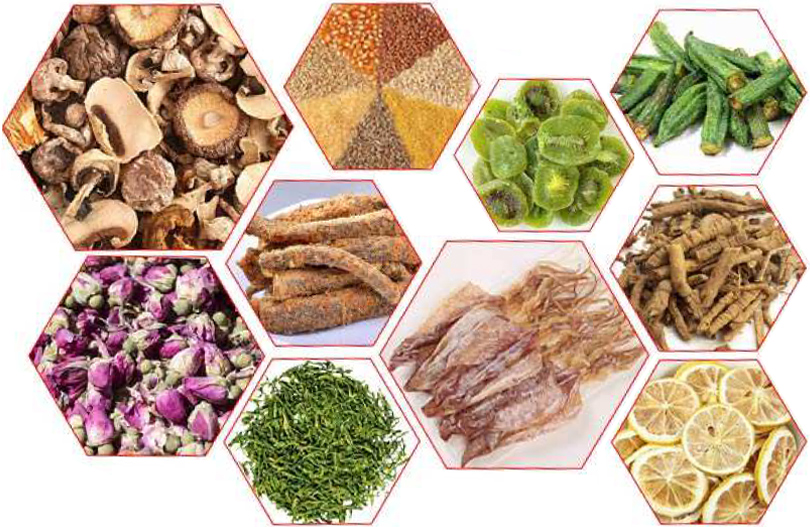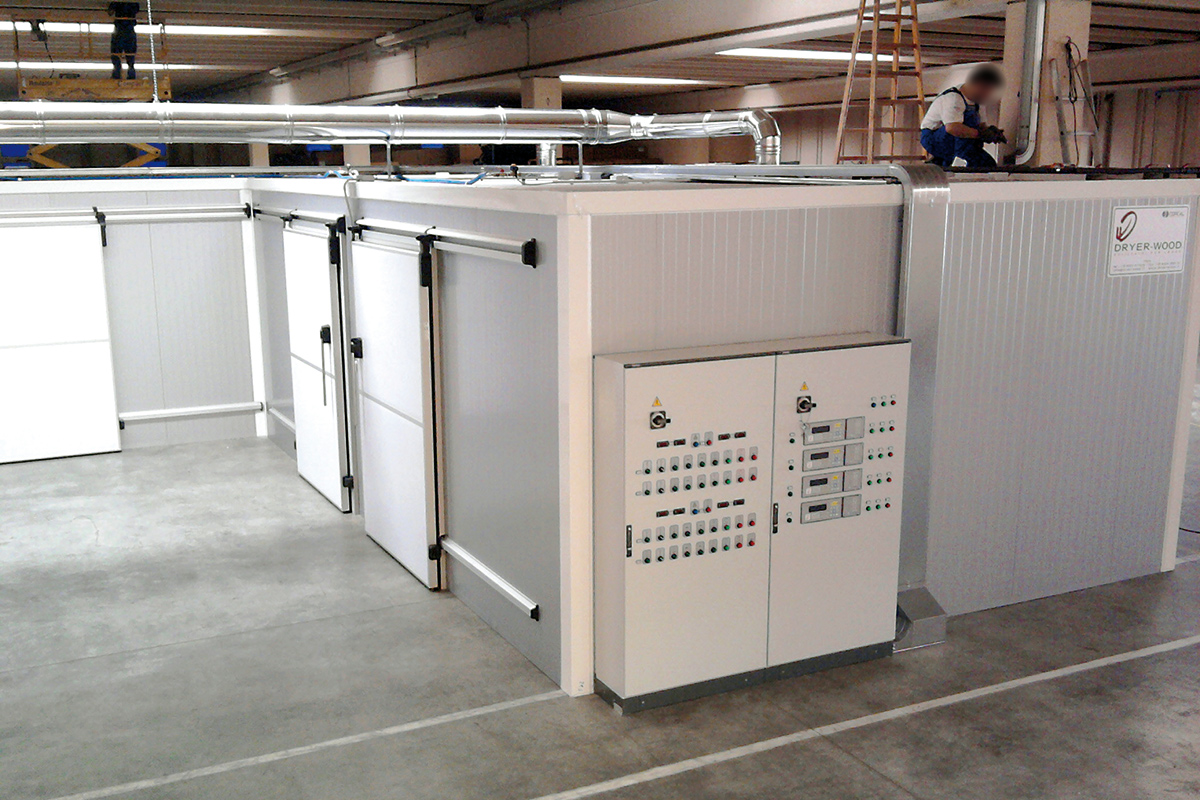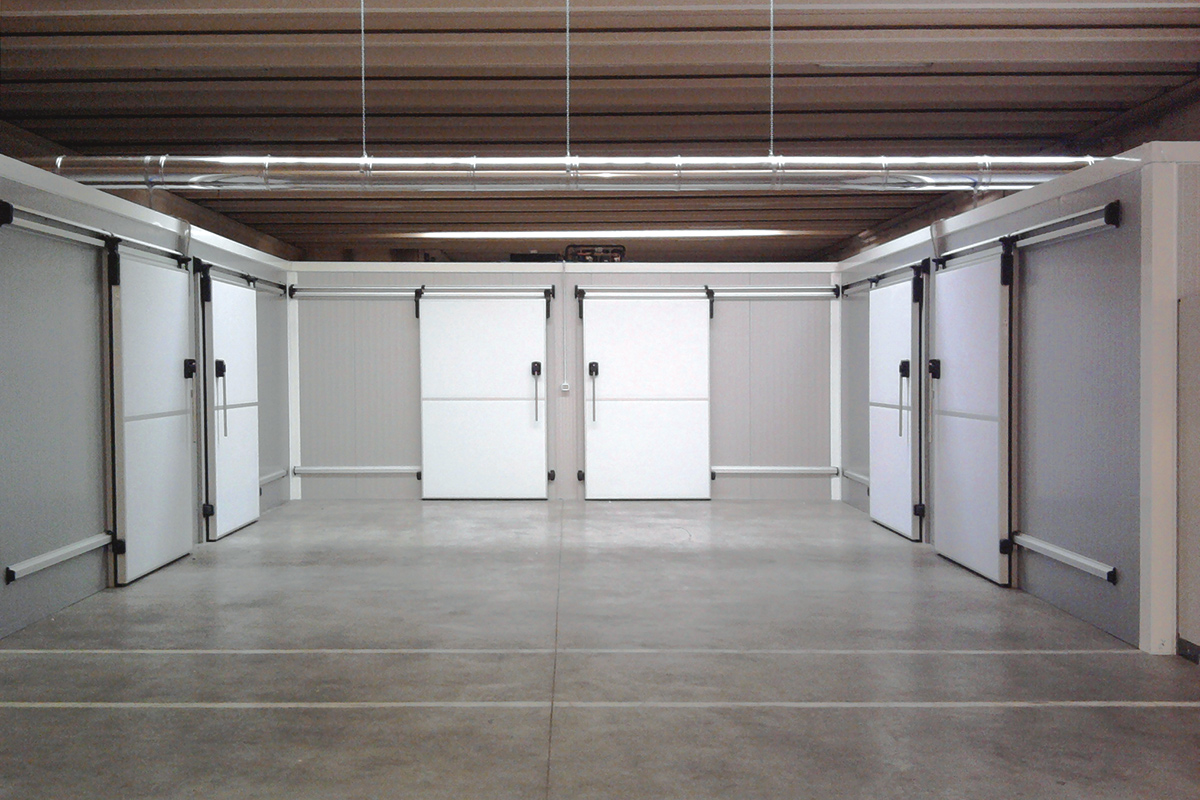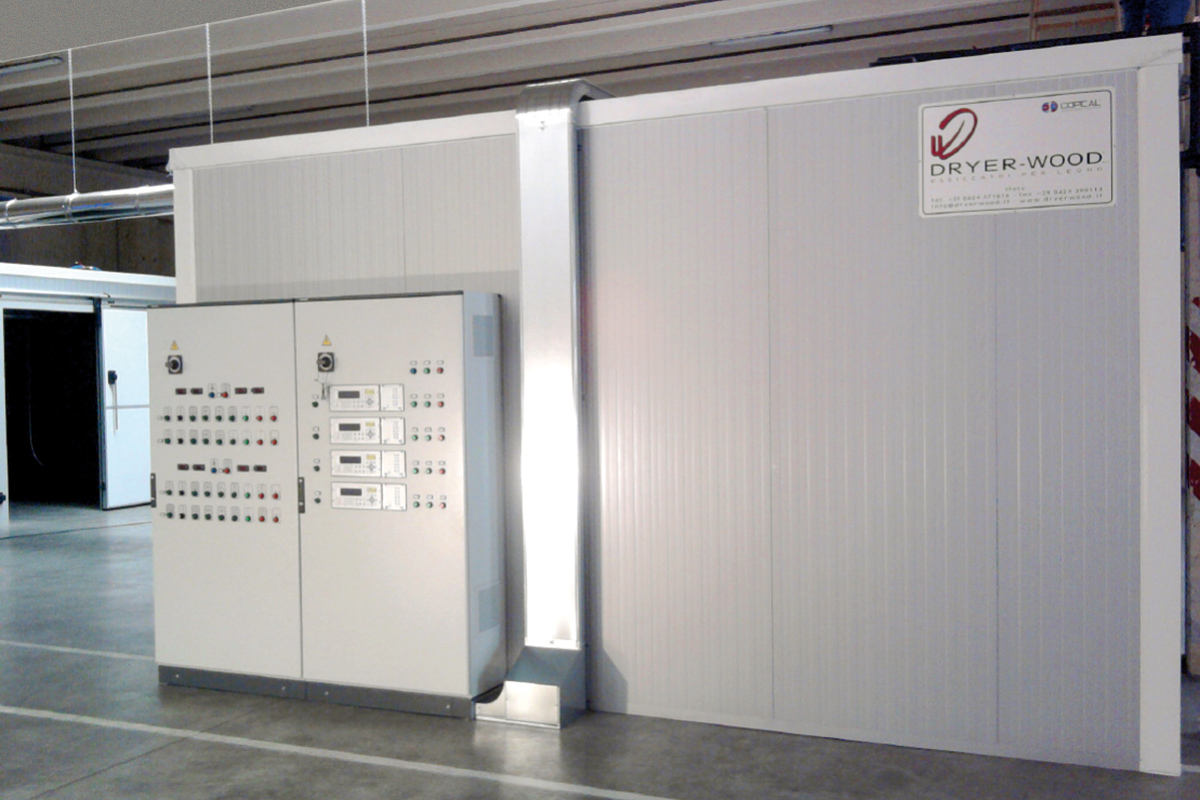for industrial-scale dehydration and preservation of agri-food products
Series COPCAL FD “Fresh and dry”
Dryer-wood offers a series of dryers specifically designed for the industrial dehydration of fruit and plants such as medicinal herbs and tobacco. The drying process - performed quickly, economically and efficiently - uses special treatment procedures that cause as little stress to the plants as possible and take the specific chemical-physical characteristics of each product into account. This type of dryer is therefore suitable for all agri-industrial enterprises that make semi-dry and dry products.
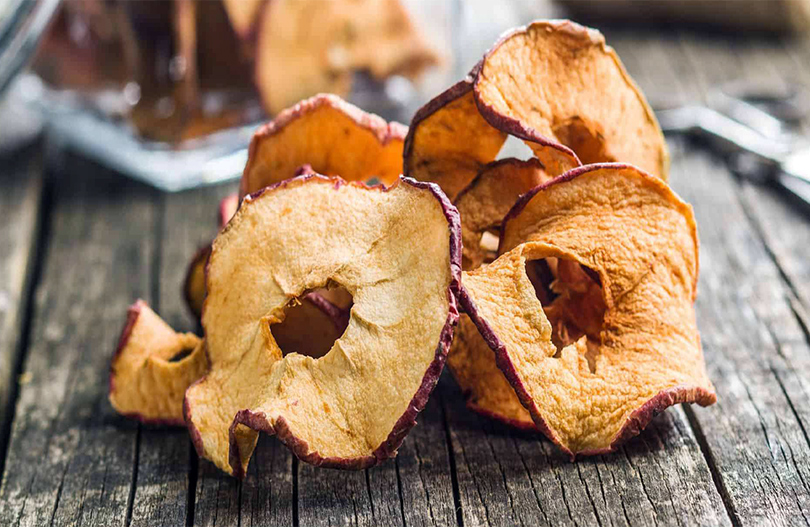
Semi-dry and dry products
The fruit and vegetable market has recently been given a boost by a new type of product with an excellent shelf life. Semi-dry foods are foods that undergo a partial dehydration process in which 50% of the water is evaporated. This new technology is mainly applied to vegetables that will then be frozen. Compared to frozen fresh foods, their semi-dry counterparts ensure greater food safety as they have a lower internal water content which, in turn, means a lower bacterial load. Dry foods, on the other hand, are those in which dehydration eliminates 100% of the water contained in the product.
COPCAL FD series dryers consist of a drying cell through which air is circulated, a heating system to obtain the correct process temperature, a dehumidifying system to eliminate the water extracted from the product and an electronic controller that automatically manages the entire drying process. We can, on request, supply carts with drawers or baskets to store the product to be dried. The capacity of these dryers ranges from 500 kg to 3000 kg of product per drying cycle. The materials used to manufacture the dryers are always of the highest quality and suitable for their intended use. Some models feature an automatic washing system to ensure proper machine sanitization.
Why choose a COPCAL FD dryer?
- To preserve the natural colour, smell and taste of the food thanks to special Dryer-wood technology that allows low-temperatures drying;
- To ensure excellent organoleptic quality over time;
- Because it combines low manpower requirements with user-friendliness;
- Because of optimal drying uniformity;
- Because of the low running costs.
